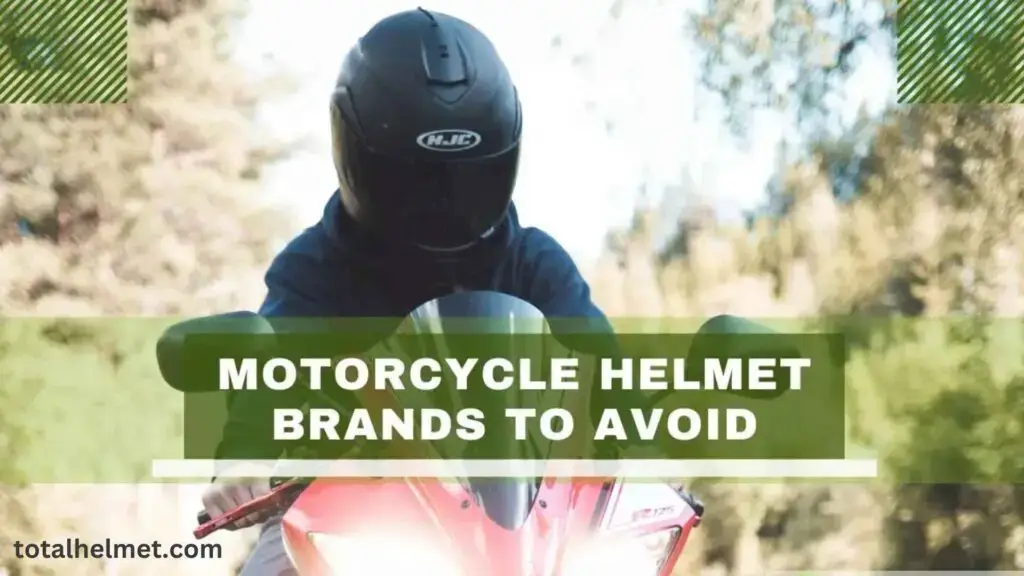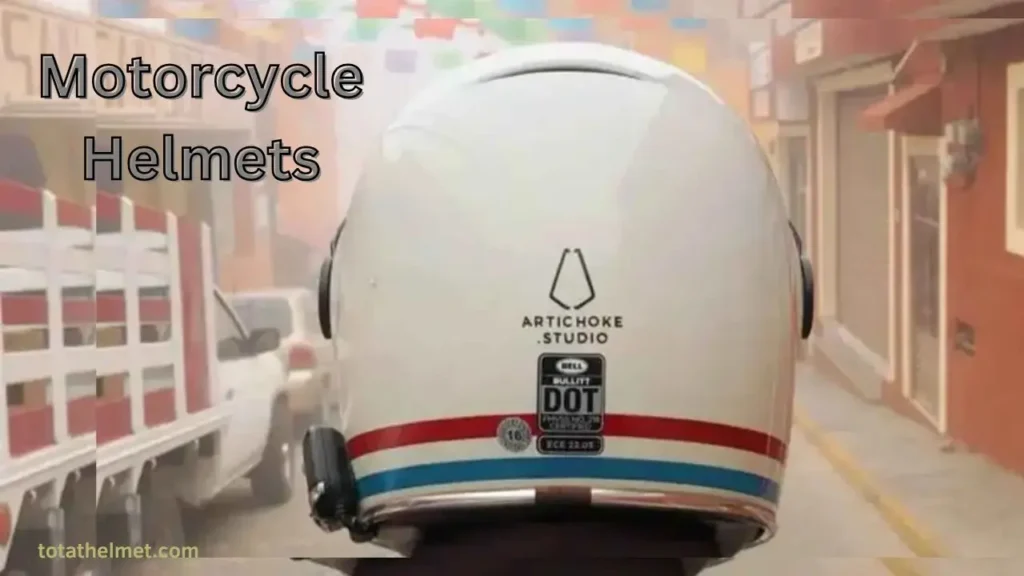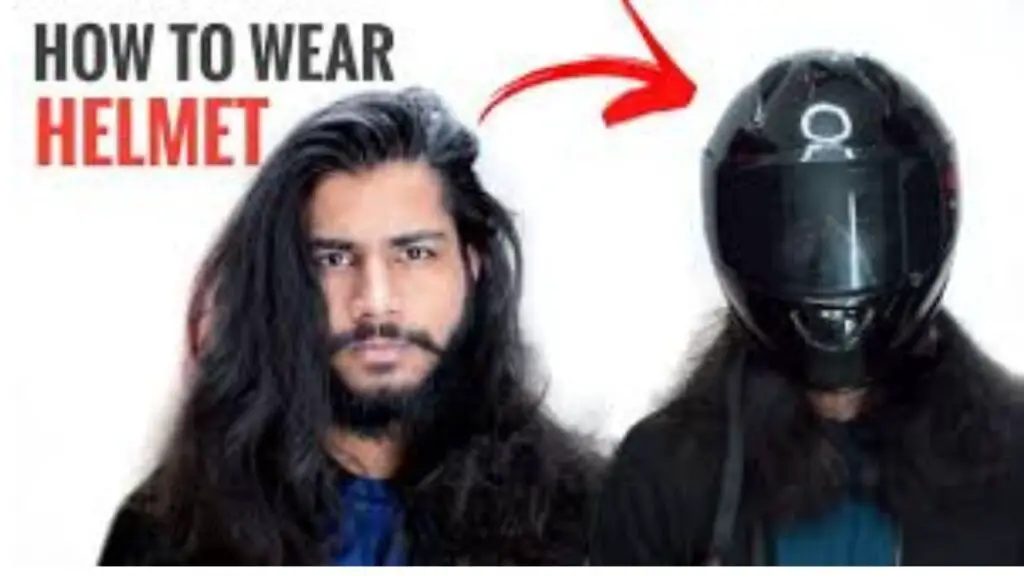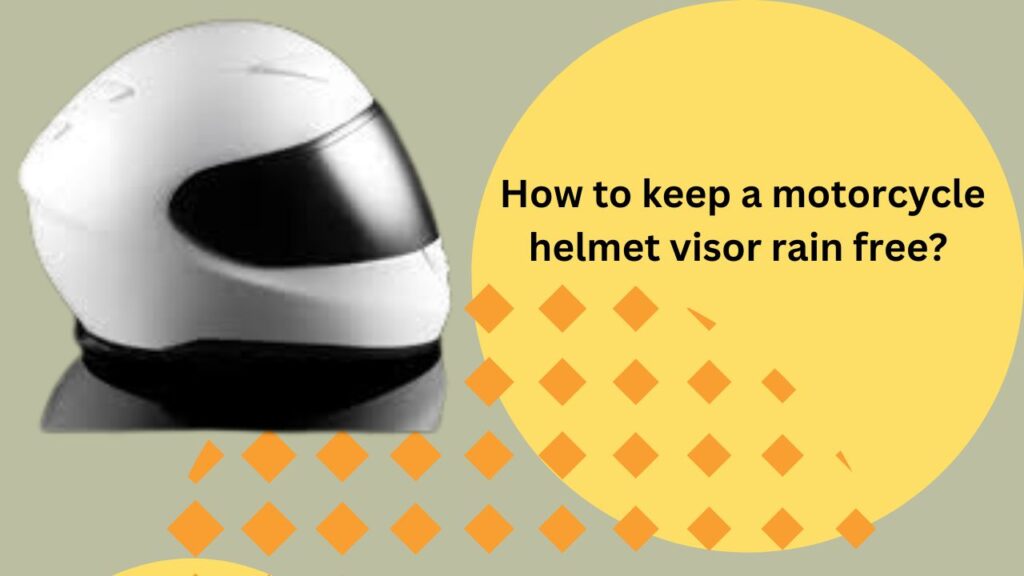When you’re riding your motorcycle, safety is crucial. Not all helmets are as safe as they seem. Some brands might look cool but don’t always provide the protection you need. This is a serious issue because, on the road, you need a helmet you can trust.
Some helmets from certain brands don’t meet safety standards. Reports indicate these helmets might not be as safe as they should be, which is concerning. You need to ensure your helmet will protect you if something goes wrong. You can make smarter choices by learning about helmet safety and the brands to avoid. Let’s look at which helmet brands to avoid to make the safest choice for your next ride.
Top 8 Worst Motorcycle Helmet Brands to Avoid in 2024
- HLN
HLN helmets have a reputation for being unsafe due to poor-quality materials and insufficient protection.- Pros: Affordable, basic protection.
- Reasons to Avoid: Safety concerns, substandard materials, limited features.
- Overall: Cheap option for budget riders, but safety is questionable.
- Box
Box helmets lack the proper safety certifications, making them unreliable during a crash.- Pros: Budget-friendly, good for entry-level riders.
- Reasons to Avoid: Poor build quality, basic features, uncomfortable fit.
- Overall: Decent for beginners, but not suitable for high-speed rides.
- NZI
NZI helmets have build quality issues, including flimsy construction and poor padding. Some models fail to meet safety standards.- Pros: Affordable, good build quality.
- Reasons to Avoid: Safety concerns, uncomfortable fit, limited features.
- Overall: Suitable for casual use, but lacks premium options.
- AVG
AVG helmets face criticism for not meeting high safety and durability standards.- Pros: Reliable brand, decent quality.
- Reasons to Avoid: Not widely known, safety concerns.
- Overall: Some models are good, but research is required.
- Shoei Qwest
The Shoei Qwest helmet has mixed reviews, with riders noting high noise levels and discomfort. It is also relatively expensive.- Pros: High quality, excellent safety features.
- Reasons to Avoid: Pricey, discomfort in cheek pads.
- Overall: Great for serious riders, but comfort and cost may be an issue.
- HJC
While HJC offers a wide range of helmets, some have issues with fit and comfort.- Pros: Good value for money, a wide range of models.
- Reasons to Avoid: Fit issues, limited features.
- Overall: Reliable, but try on different models for a better fit.
- Torc
Torc helmets are affordable but have inconsistent quality and basic protection.- Pros: Stylish, budget-friendly.
- Reasons to Avoid: Basic safety features, inconsistent quality.
- Overall: Best for casual riders, not ideal for extreme conditions.
- Bell
Bell is a trusted brand with high safety standards, but its helmets can be expensive with limited features.- Pros: Reputable brand, high safety ratings.
- Reasons to Avoid: Pricey, fewer features.
- Overall: Excellent for safety, but may not offer the best value for money.
Summary: Shoei Qwest and Bell are top choices for safety and quality. Brands like HLN and Box are budget-friendly and have basic features. HJC offers a good balance but needs careful model select

What Makes a Helmet Bad?
Choosing the safe helmet is crucial for safety. Here’s what to look out for:
Key Features of a Safe Helmet
- Strong Shell: Materials like fiberglass or polycarbonate.
- Good Foam Liner: EPS foam for impact absorption.
- Comfortable Fit: Padding that hugs the head snugly.
- Clear Visor: For better visibility.
- Secure Chin Strap: To keep the helmet in place.
- Safety Certifications: Look for DOT, ECE, or other certifications.
Importance of Helmet Construction
- First Defense: Shell
Materials like polycarbonate, ABS, or thermoplastic offer decent protection but may not hold up at high speeds. Fiberglass and carbon fiber (Aramid or Kevlar) are better, as they absorb more energy and crack in a “spiderweb” pattern. - Second Defense: EPS Foam
EPS foam absorbs the energy from impacts. Look for helmets with multiple foam densities for different impact levels. Always replace a helmet after a crash. - Comfort and Defense: Padding
The padding should be snug to prevent movement in case of impact. Emergency release cheek pads are useful for paramedics. - Visibility and Airflow
Ensure the helmet has a quality visor that won’t fog or scratch easily. Look for anti-fog technology like Pinlock visors and functional ventilation systems to keep you cool. - Chin Strap
A double D-ring strap offers the best security, while ratchet straps are easier to release but less reliable. Stainless steel straps are more durable than cheaper alloys. - Safety Certification
- DOT: Basic road-legal certification in the USA.
- Snell: More rigorous testing, suitable for racing.
- ECE: European standard, testing for direct and rotational impacts.
- FIM: The highest standard for professional motorcycle racing helmets.
In conclusion, a bad helmet lacks a strong shell, quality foam, proper fit, and necessary safety certifications. Always check these factors to ensure your helmet provides optimal protection. Prioritizing comfort, visibility, and airflow will enhance your riding experience and keep you safe on the road.
Consequences Of Wearing a Low-Quality Helmet
1. Less Protection and More Risk of Getting Hurt
When you wear a helmet that’s not good quality, it doesn’t keep you as safe as it should. These helmets might not have enough padding or strong material to protect your head well. So, if there’s an accident, you’re more likely to get seriously hurt. You could hurt your brain, break your skull, or even die.
2. Legal Problems
In many places, there are rules about the kind of helmet you have to wear when riding a bike or motorcycle. If you wear a bad helmet that doesn’t meet these rules, you can get in trouble with the law. You might have to pay fines or even lose your right to drive. And if you have an accident, your insurance might not pay if your helmet isn’t good enough. So, wearing a cheap helmet doesn’t just put you at risk, it can also cause legal issues
What Makes the Safest Helmets?
For a safe helmet, look for the following characteristics:
- Strong Shell: Choose fiberglass or carbon fiber helmets for better impact resistance.
- Dual-Density EPS Foam: Ensure the foam absorbs various impact levels effectively.
- Effective Ventilation: Look for easy-to-use vents connected to channels in the EPS foam for proper airflow.
- Removable Liner: This allows for easy cleaning and maintenance.
- Safety Certifications: Check for DOT, ECE, or FIM certifications to ensure compliance with safety standards.
Importance of Fit
A snug fit is crucial for protection. Ensure the helmet fits well, as loose helmets won’t provide adequate safety.
Additional Safety Features
- MIPS Technology: Helmets with MIPS reduce rotational forces in a crash, potentially minimizing injury severity.
Ratings and Build Quality
Choose helmets with good safety ratings and strong construction to withstand impacts effectively

How to Buy a Good Motorcycle Helmet Online: Tips and Advice
Buying a motorcycle helmet online can be convenient, but it’s essential to make sure you get the right one to stay safe on the road. Here are some tips to help you buy the best motorcycle helmet.
Know Your Size
Before you start browsing, measure your head size accurately. Most online sellers provide size charts to help you choose the right fit.
Check Safety Ratings
Look for helmets that meet safety standards set by organizations like DOT (Department of Transportation) or ECE (Economic Commission for Europe). These ratings ensure that the helmet provides adequate protection in case of an accident.
Read Reviews
Take the time to read reviews from other buyers to get an idea of the helmet’s quality, comfort, and durability. Pay attention to the Helmets expiry date.
Understand Return Policies
Since you can’t try on the helmet before purchasing online, familiarize yourself with the seller’s return policy. Make sure you can return or exchange the helmet if it doesn’t fit or meet your expectations.
Compare Prices
While it’s essential to prioritize safety and quality, comparing prices from different sellers can help you find the best deal without compromising on safety.
Identifying Warning Signs in Helmet Brands
- Substandard Shell Construction
- Inadequate EPS Foam
- Poor Padding and Comfort
- Compromised Visibility with Inferior Visors
- Inefficient Ventilation and Airflow
- Unreliable Chin Straps
- Misleading Pricing
- Absence of Safety Certifications
Conclusion
When it comes to motorcycle helmets, safety and reliability should be your top priorities. While many brands offer quality helmets that meet safety standards, some motorcycle helmet brands consistently receive poor reviews and fail to provide adequate protection. Helmets from these brands often suffer from issues such as subpar materials, poor construction, and inadequate testing, which can put riders at serious risk.
By being aware of the worst motorcycle helmet brands to avoid, you can make informed decisions and choose a helmet that ensures your safety on the road. Remember, investing in a reputable and certified light motorcycle helmet is crucial for your protection and peace of mind.
FAQs
Which brand of helmet is safest?
The safest helmet depends on the specific model and its safety certifications, like DOT or ECE. Check those certifications, no matter the brand, to find the safest option.
What is the least safe motorcycle helmet?
The least safe motorcycle helmets are typically those that don’t meet safety standards like DOT or ECE. Always look for helmets with these certifications to ensure your safety.
What’s the difference between cheap and expensive motorcycle helmets?
The main difference between cheap and expensive motorcycle helmets is the quality of materials, construction, and additional features.
Does dropping a motorcycle helmet ruin it?
Dropping a motorcycle helmet can potentially ruin it, especially if it sustains significant impact or damage to its structural integrity.
About the Author
I am Daniel Ken, an experienced motorcycle rider with 8 years on the road, and I specialize in writing about motorcycle helmets. I share expert insights on helmet safety, comfort, and style, helping fellow riders choose the best gear. My knowledge covers top safety standards, helmet types, premium materials, and advanced ventilation and noise reduction features.

